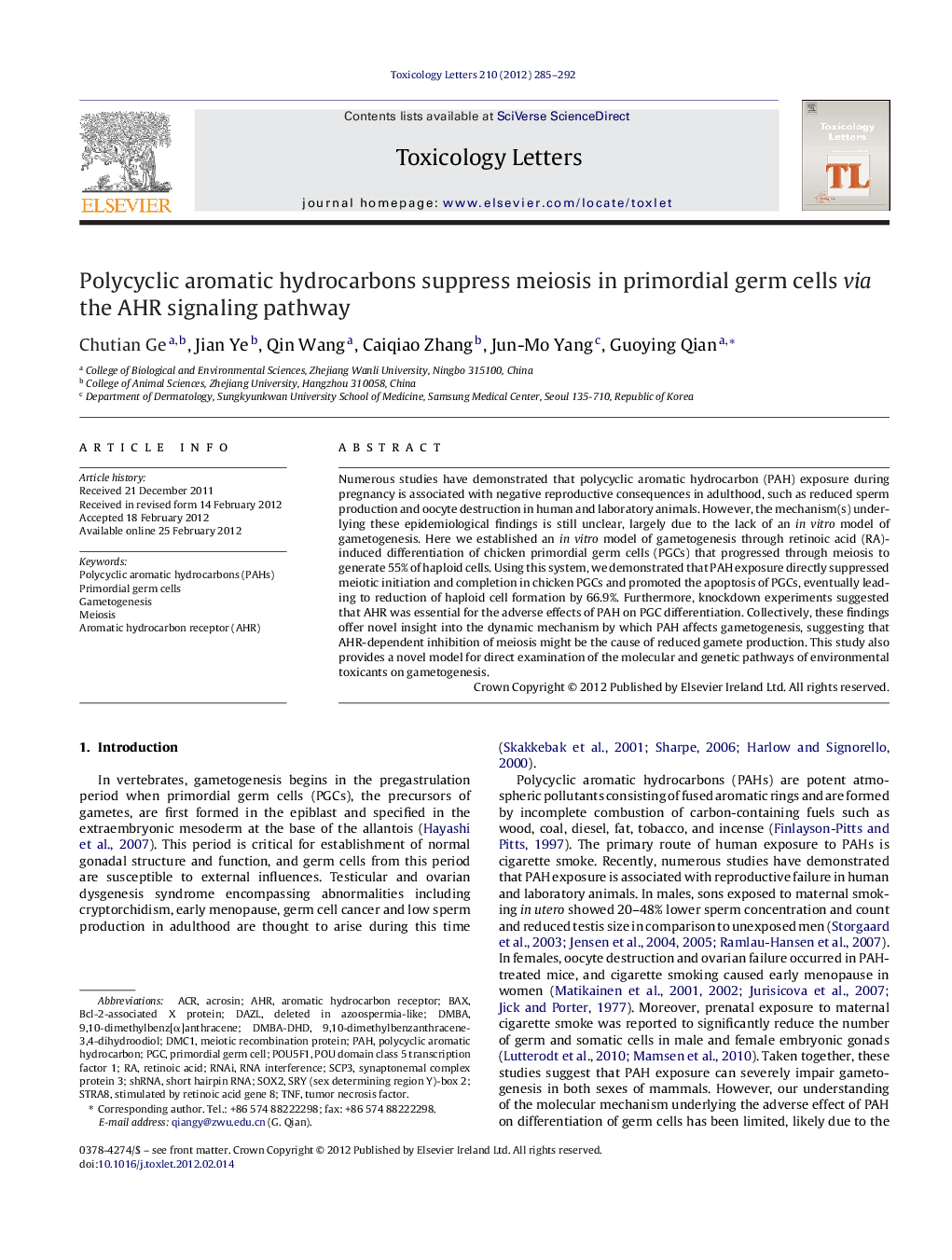| Article ID | Journal | Published Year | Pages | File Type |
|---|---|---|---|---|
| 2599757 | Toxicology Letters | 2012 | 8 Pages |
Numerous studies have demonstrated that polycyclic aromatic hydrocarbon (PAH) exposure during pregnancy is associated with negative reproductive consequences in adulthood, such as reduced sperm production and oocyte destruction in human and laboratory animals. However, the mechanism(s) underlying these epidemiological findings is still unclear, largely due to the lack of an in vitro model of gametogenesis. Here we established an in vitro model of gametogenesis through retinoic acid (RA)-induced differentiation of chicken primordial germ cells (PGCs) that progressed through meiosis to generate 55% of haploid cells. Using this system, we demonstrated that PAH exposure directly suppressed meiotic initiation and completion in chicken PGCs and promoted the apoptosis of PGCs, eventually leading to reduction of haploid cell formation by 66.9%. Furthermore, knockdown experiments suggested that AHR was essential for the adverse effects of PAH on PGC differentiation. Collectively, these findings offer novel insight into the dynamic mechanism by which PAH affects gametogenesis, suggesting that AHR-dependent inhibition of meiosis might be the cause of reduced gamete production. This study also provides a novel model for direct examination of the molecular and genetic pathways of environmental toxicants on gametogenesis.
► PAHs suppressed meiotic initiation and completion in chicken PGCs. ► AHR is required for PAH-induced inhibition of meiosis in PGCs. ► PAH caused apoptosis of chicken PGCs. ► PAH-induced meiosis failure was independent of BAX. ► Inhibition of meiosis might be the cause of PAH-induced reduced gamete production.
